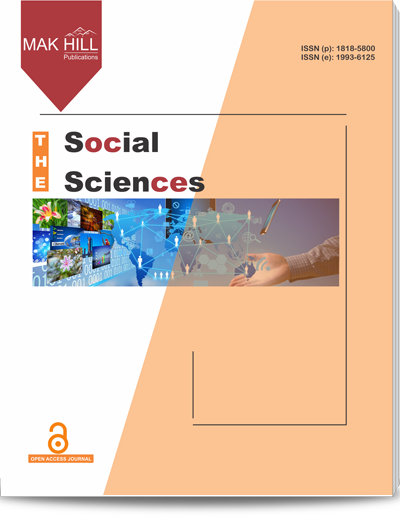
The Social Sciences
ISSN: Online 1993-6125ISSN: Print 1818-5800
Abstract
Nowadays, the quality of postgraduates training is defined by the commitment (readiness) of the students to effective professional activity, by the possession of the professional skills associated with future profession and by proficiency in professional communication. Modern educational standards of higher professional education give the choice to a wide range of disciplines in the variable part of the curriculum to achieve the effectiveness of training highly qualified postgraduates. It emphasizes the importance of inclusion of targeted activities in the educational process to improve language competence, to improve communication skills, to develop communicative qualities of students’ speech. Rhetoric and communication culture helps to learn conscious and effective verbal interaction most purposefully. The term “neo-rhetoric” in the study refers to persuasive communication. Rhetorical skills form the basis of rhetorical competence. The process of mastering rhetorical skills helps students to achieve rhetorical ideal which is considered as “mental sample and the image of a good speech”. The program of rhetorical ideal formation with the use of new pedagogical technologies was developed to get the postgraduates with a high level of communicative skills. The study presents some studies on the neo-rhetoric aimed at the formation of the mental image of the student language personality.
How to cite this article:
N.A. Turanina, G.A. Kuljupina, V.Ju. Turanin and I.G. Kolesnikova. Neo-Rhetoric and Formation of the Mental Image of the Postgraduate’s Linguistic Personality.
DOI: https://doi.org/10.36478/sscience.2016.765.769
URL: https://www.makhillpublications.co/view-article/1818-5800/sscience.2016.765.769